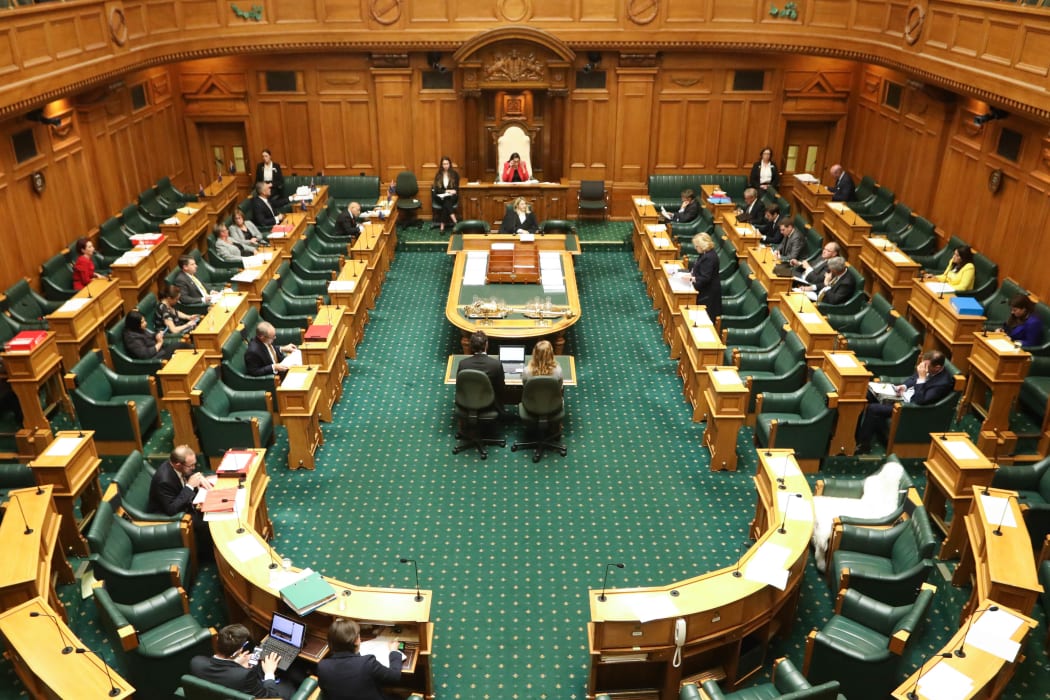It’s the fourth week of the Parliamentary year, but today was the first time that the House got to have a General Debate. In previous weeks other things have taken precedence.
The Taupatupatu Whānui or General Debate is Parliament’s version of slam oratory (with the emphasis on slam).
The debate usually takes roughly an hour every Wednesday after Oral Questions and before the House gets down to debating legislation. And because it follows Question Time you can easily see that the speeches often echo the talking points and attacks of the earlier to-and-fro.

The House in session. Photo: VNP / Phil Smith
So, today for example, Opposition attacks during Oral Questions were focused on the Regional Growth Fund, and the capital gains tax idea. Snap for the debate.
And like in question time, sometimes the chosen defence is attack. So, today Shane Jones (under attack on the Regional Growth Fund) focused on news of a Serious Fraud Office investigation into National Party donations.
Government party speakers often focus on a government achievement or announcement, as Andrew Little did (Pike River re-entry), or Eugenie Sage (the Kahurangi National Park enlargement). Just like a minister answering a patsy question might.
The General Debate is more no holds barred than Oral Questions though, so a positive message is usually also a chance for a swipe. By comparison as often as not.
Or like Labour's Anahila Kanongataa Suisuiki, an MP can eschew all the slings and arrows, and focus on something entirely non-political. Something that would otherwise never come up for debate. She wanted to talk about the 44th annual Polyfest which began today.


